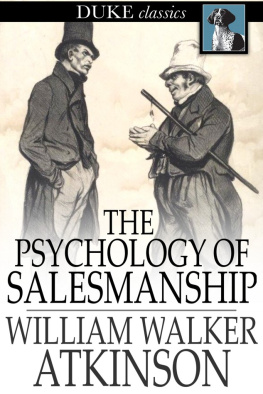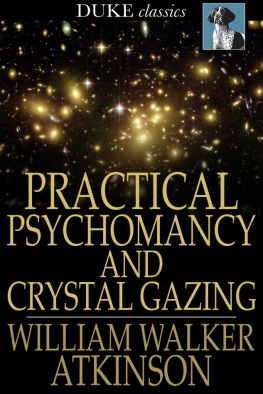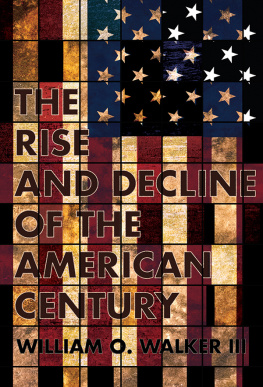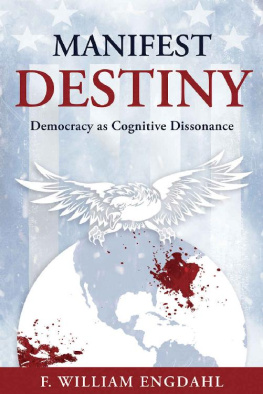Gobat - Empire by Invitation: William Walker and Manifest Destiny in Central America
Here you can read online Gobat - Empire by Invitation: William Walker and Manifest Destiny in Central America full text of the book (entire story) in english for free. Download pdf and epub, get meaning, cover and reviews about this ebook. publisher: Harvard Univ Pr, genre: Politics. Description of the work, (preface) as well as reviews are available. Best literature library LitArk.com created for fans of good reading and offers a wide selection of genres:
Romance novel
Science fiction
Adventure
Detective
Science
History
Home and family
Prose
Art
Politics
Computer
Non-fiction
Religion
Business
Children
Humor
Choose a favorite category and find really read worthwhile books. Enjoy immersion in the world of imagination, feel the emotions of the characters or learn something new for yourself, make an fascinating discovery.

Empire by Invitation: William Walker and Manifest Destiny in Central America: summary, description and annotation
We offer to read an annotation, description, summary or preface (depends on what the author of the book "Empire by Invitation: William Walker and Manifest Destiny in Central America" wrote himself). If you haven't found the necessary information about the book — write in the comments, we will try to find it.
Gobat: author's other books
Who wrote Empire by Invitation: William Walker and Manifest Destiny in Central America? Find out the surname, the name of the author of the book and a list of all author's works by series.
Empire by Invitation: William Walker and Manifest Destiny in Central America — read online for free the complete book (whole text) full work
Below is the text of the book, divided by pages. System saving the place of the last page read, allows you to conveniently read the book "Empire by Invitation: William Walker and Manifest Destiny in Central America" online for free, without having to search again every time where you left off. Put a bookmark, and you can go to the page where you finished reading at any time.
Font size:
Interval:
Bookmark:
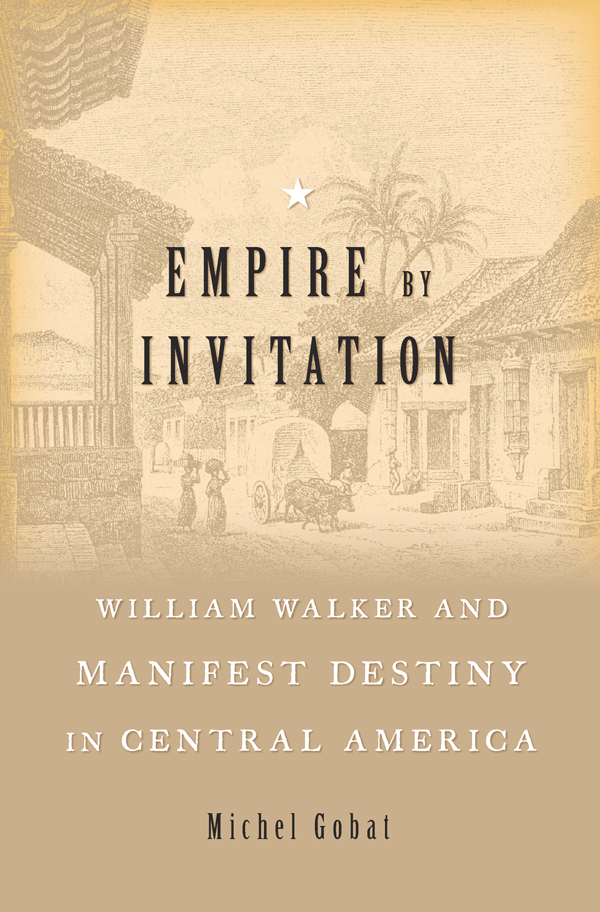
EMPIRE by INVITATION

WILLIAM WALKER AND MANIFEST DESTINY IN CENTRAL AMERICA
Michel Gobat


Cambridge, Massachusetts
London, England
2018
Copyright 2018 by the President and Fellows of Harvard College
All rights reserved
Jacket design: Lisa Roberts
Jacket illustration: Street view in LeonCalle de San Juan, from E. G. Squier, Nicaragua: Its People, Scenery, Monuments, and the Proposed Interoceanic Canal (New York: D. Appleton & Co., 1852). Courtesy of the Darlington Digital Library Collection, University of Pittsburgh Library.
978-0-674-73749-5 (alk. paper)
978-0-674-98501-8 (EPUB)
978-0-674-98502-5 (MOBI)
978-0-674-98503-2 (PDF)
The Library of Congress has cataloged the printed edition as follows:
Names: Gobat, Michel, author.
Title: Empire by invitation : William Walker and Manifest Destiny in Central America / Michel Gobat.
Description: Cambridge, Massachusetts : Harvard University Press, 2018. | Includes bibliographical references and index.
Identifiers: LCCN 2017045245
Subjects: LCSH: Walker, William, 18241860. | FilibustersNicaraguaHistory. | Manifest Destiny. | NicaraguaHistoryFilibuster War, 18551860. | DemocratizationNicaraguaHistory. | United StatesRelationsNicaragua. | United StatesRelationsCentral America. | NicaraguaRelationsUnited States. | Central AmericaRelationsUnited States.
Classification: LCC F1526.27 .G625 2018 | DDC 327.7307285/09034dc23 LC record available at https://lccn.loc.gov/2017045245
For Laura
ON J ULY 12, 1856, a crowd gathered in the Nicaraguan capital of Granada to celebrate the inauguration of William Walker as president. The Tennessee native had become the strongman of Central Americas largest nation when his group of U.S. expansionists helped the Liberal Party overthrow the Conservative Party government in October 1855. After first ruling through a local puppet, Walker seized the presidency via an election marred by the California style of ballot stuffing. In the meantime, thousands of U.S. residents had flocked to his tropical realm, lured by the promise of rich mines and land bonanzas. Walker himself was drawn to Nicaragua because it was the likely site of an interoceanic canal destined to become the worlds main commercial highway. Although the United States eventually built the canal in Panama (19041914), in the mid-nineteenth century it deemed Nicaragua the better site. Walker embodied U.S. interest in annexing a country of great geopolitical importance. Yet U.S. annexation was also championed by many Nicaraguans in the hope that it would end the civil wars plaguing their country since it gained independence from Spain in 1821. The desire to join the Union as a nonslave state was especially strong among Nicaraguan Liberals, who admired the United States as their model republic and sought to entice U.S. citizens to settle in the resource-rich but sparsely populated country.
The crowd at Walkers presidential inauguration was highly diverse, ranging from Nicaraguan priests, merchants, and peasant rebels to U.S. fugitives on the run, farmers, temperance activists, and proslavery advocates, and to European socialists and Cuban independence fighters. As different as they were in their origins and views, most backed Walkers goal of forging a Central American empire in the name of spreading U.S.-style democracy and progress to a down-trodden and oppressed people.
The prodemocracy discourse of Walkers movement was no charade. It even found its way into private letters, as when a surgeon told his family in Ohio not to fit about him for he was right side up with care fighting for the liberty and regeneration of Nicaragua. Walker attracted U.S. Southerners who maintained that democracy was for white peoples only and saw no contradiction in their efforts to spread liberty and slavery to a region where slavery had been abolished in 1824. Yet many more of Walkers followers not only opposed the expansion of slavery but also sought to uplift the native masses and free them from allegedly despotic elites. And it was their more inclusive yet also paternalistic form of democracy that mainly marked Walkers rule. Hence the apparent paradox of a U.S. expansionist enjoying the support of local radicals of humble origins.
Walkers movement lasted for only two years before succumbing to a massive Central American army determined to oust him and his followers. The episode was nonetheless a watershed in U.S. relations with the world; it represented the first time that U.S. citizens had seized control of a nation outside the continental United States and sought to create an overseas empire. Walkers exploits electrified the United States, which was enthralled with the expansionist spirit of Manifest Destiny. In retrospect, it is astounding that he enjoyed support from U.S. groups that in a few years would stand on opposite sides of a brutal civil war. Much like his putative successors in liberal-internationalist and neoconservative circles a century later in Washington, DC, Walkers imperial quest inspired a fierce anti-U.S. backlash; it pushed the European powers in the Caribbean to nearly wage war against the United States. In Latin America, his conquest engendered a continental alliance against the northern colossus that gave birth to the very idea of Latin America. Many who had admired the United States for its democracy now deemed it a rogue nation.
Because Walkers movement was short-lived, its efforts to spread Thomas Jeffersons acclaimed empire of liberty abroad is a largely forgotten story. Already in 1906, a popular U.S. writer moaned that the name of William Walker conveys absolutely nothing to his compatriots; little has changed since. In Central America, by contrast, the Walker episode remains deeply etched in local memory. Much of the region still celebrates the 1857 defeat of Walker as its main war of independence, and Nicaraguas principal civic holiday remains the annual commemoration of the first native victory over Walkers army: the Battle of San Jacinto. Yet few Central Americans remember that some Nicaraguans once embraced Walkers men as saviors who sought to uplift the local poor by promoting democracy, land reform, public health, education, public works, and so on. For generations, Central Americans have been taught to view Walkers men as oppressors who brought, to cite the famous poet Rubn Daro, only the barbarity of blue eyes, cruelty, and the rifle. Walkers men clearly wreaked havoc, as exemplified by their razing of Granada, one of the oldest cities in the hemisphere. But to reduce their enterprise to wanton violence would be to ignore the seductive nature of what we now call U.S. liberal imperialism.
Local support for Walkers enterprise has been overlooked by scholars in both Central America and the United States. Many simply dismiss Walker and his men as international criminals. Others see them as pawns in the war of the commodores fought among U.S. tycoons for control of a lucrative interoceanic route, with the wars devastating effects being the tragic price Nicaraguans paid for the capitalist development of the United States. Yet others deem the Walker episode a wacky affair where an egomaniac sought to rule a hapless people with the help of a handful of bloodthirsty mercenaries. This was the image promoted by the 1987 Hollywood movie
Font size:
Interval:
Bookmark:
Similar books «Empire by Invitation: William Walker and Manifest Destiny in Central America»
Look at similar books to Empire by Invitation: William Walker and Manifest Destiny in Central America. We have selected literature similar in name and meaning in the hope of providing readers with more options to find new, interesting, not yet read works.
Discussion, reviews of the book Empire by Invitation: William Walker and Manifest Destiny in Central America and just readers' own opinions. Leave your comments, write what you think about the work, its meaning or the main characters. Specify what exactly you liked and what you didn't like, and why you think so.


